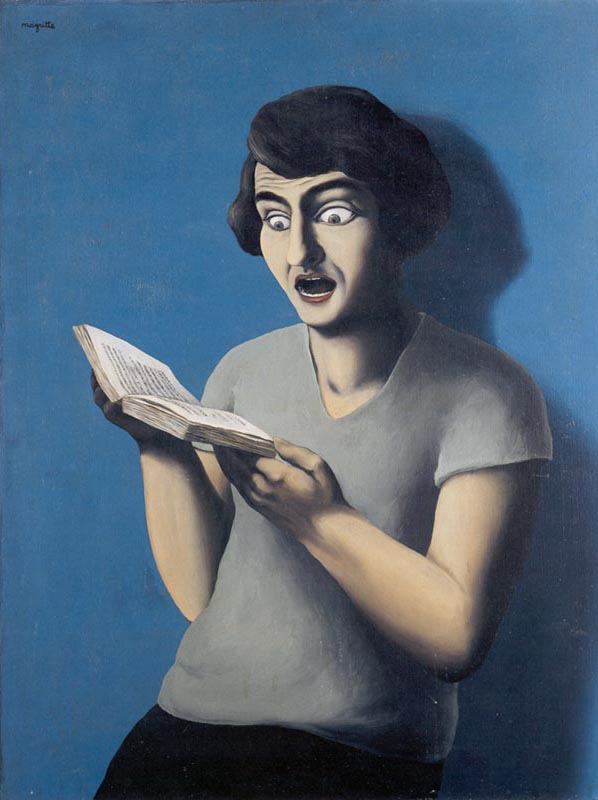
An excerpt from B.R. Myers' piece which appeared in the print version of the Atlantic Monthly a few months ago:
People like Passaro, of course, tend to think that anyone indifferent to the latest "smart" authors must be vegetating in front of the television, or at best silently mouthing through a Tom Clancy thriller. The truth is that a lot of us are perfectly happy with literature written before we were born-and why shouldn't we be? The notion that contemporary fiction possesses greater relevance for us because it talks of the Internet or supermodels or familiar brand names is ridiculous. We can see ourselves reflected more clearly in Balzac's Parisians than in a modern American who goes into raptures when his daughter says "Toyota Celica" in her sleep. This is not to say that traditional realism is the only valid approach to fiction. But today's Serious Writers fail even on their own postmodern terms. They urge us to move beyond our old-fashioned preoccupation with content and plot, to focus on form instead-and then they subject us to the least-expressive form, the least-expressive sentences, in the history of the American novel. Time wasted on these books is time that could be spent reading something fun. When DeLillo describes a man's walk as a "sort of explanatory shuffle ... a comment on the literature of shuffles" (Underworld), I feel nothing; the wordplay is just too insincere, too patently meaningless. But when Vladimir Nabokov talks of midges "continuously darning the air in one spot," or the "square echo" of a car door slamming, I feel what Philip Larkin wanted readers of his poetry to feel: "Yes, I've never thought of it that way, but that's how it is." The pleasure that accompanies this sensation is almost addictive; for many, myself included, it's the most important reason to read both poetry and prose.
There, now I don't have to say it. Actually, I've never bothered to read any of these so-called pretentious authors. But I'm sure anything that can get such a huge rise out of so many publishers and bestselling authors can't be all wrong. As hinted at by the soundtrack to this page (and the essay linked below), the real hostility here is not directed at these pitiful authors, but at these uncritical critics. And since, we are all of us at times uncritical, the real hostility is directed ultimately, as any good psychology student would point out, at ourselves.